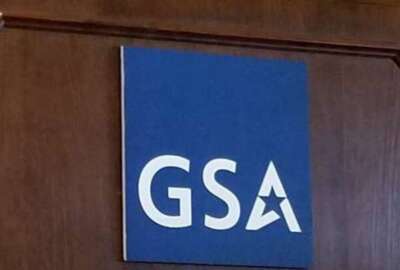GSA names ombudsman to give industry a louder voice
Jeff Koses, the senior procurement executive at the General Services Administration, said the ombudsman will help vendors navigate the acquisition bureaucracy and...
A new procurement ombudsman aims to close the communications gap between the General Services Administration and its vendors.
The ombudsman, Millisa Gary, is one of several ways GSA is trying to be more responsive to its government and industry customers.
“Her role is to indeed be a voice for industry, make sure we are hearing their concerns and helping an industry partner in navigating our bureaucracy,” said Jeff Koses, GSA’s senior procurement executive, in an exclusive interview with Federal News Radio. “Not necessarily to resolve the issue but to get them a fair hearing and to get them in front of the right audience. Often as we are pursuing best value and pursuing savings, the value of industry conversations can’t be overstated.”
Koses, who took over as senior procurement executive in January after spending the last six years as the director of acquisition operations for the General Supplies and Services portfolio at GSA’s Federal Acquisition Service, is making changes such as naming an ombudsman part of the agency’s key initiatives to improve supplier and customer relations.
Tom Sharpe, the FAS commissioner, said among his top 10 priorities is to improve supplier/vendor satisfaction, to increase customer savings and to increase customer loyalty.
Sharpe said his ultimate goal is to increase FAS’ share of the addressable spend across government to 66 percent. Currently, agencies spend between 15 and 17 percent of the government’s procurement budget with FAS.
But before he can do that, GSA must improve some specific areas through opening a clearer and more transparent communications process with industry.
Koses said many times the failures of the government can be traced back to poor requirements definitions, which is one of those specific areas GSA is trying to address through a series of initiatives.
Tie challenges to training opportunities
Koses said the ombudsman role is something industry asked for, and naming Gary was one of the first things he did as SPE.
“Millisa’s role is to meet with industry and take that feedback and translate that for our workforce,” he said. “So, for example, if she’s hearing of a weakness in the debriefing process — a common complaint — she identifies that, she helps us identify the training that’s needed internally to reinforce that. If we have a contractor raising a specific concern, she will give voice to it. She’ll make sure we actually thoroughly discuss it, give it fair hearing and help us to reach a fair resolution.”
Three industry associations recommended a schedule ombudsman, not necessarily one for all of GSA, as part of the changes the agency should consider after a June 2013 inspector general report found improper management interference during schedule contract negotiations.
Whether having an ombudsman across all of GSA will address schedule challenges is unclear, but Koses said having ongoing conversations more broadly about vendor concerns will help GSA meet its short and long-term goals.
In addition to the ombudsman role, Koses is conducting two surveys of supplier perceptions.
FAS is asking for feedback and comments from contractors on how they perceive the organization.
A second survey is broader to a specific target vendor population, which includes both successful and unsuccessful companies in winning contracts.
“To be able to have dialogue, did you see a fair process? Were the requirements clear? Was there an open opportunity for exchange of ideas throughout the process?” Koses said. “Gaining a better handle on those perceptions, we believe, will help us continually improve the procurement process, and drive toward a potential for a closer partnership and thus greater taxpayer savings.”
Koses said the first survey went out in late March, and the results should be analyzed by late summer to identify areas that need improvement.
GSA still is formulating the second survey, but Koses hopes to release it to the select audience in mid-May.
“What we do want to do is share the results,” he said. “We have been trying to promote transparency in a host of ways. We’ve been using our Interact tool to try and really further engagement, and bring more businesses into the dialogue. We’re also trying to figure out how do we reach non-traditional government sources and make them part of the conversation. We will make the survey results available through the GSA Interact because we are trying to make that more and more our communication platform to the rest of the world.”
All-hands meeting
Koses said his focus isn’t only on vendors, but also on improving GSA’s acquisition workforce.
He said at a recent “all-hands” meeting led by Sharpe and Houston Taylor, FAS’ director of acquisition management, the workforce received more details on Sharpe’s recent policy letter and memo on the right amount of management oversight when it comes to schedule contract negotiations and other related actions.
“When we talked about the importance of management playing the right role, I summarized it that no manager should ask a contracting officer to sign something he or she wouldn’t personally sign. If a manager is comfortable signing off on it, then I don’t have that same degree of concern,” he said. “But what we don’t want to see is our folks be put in a position of signing something that the boss would not sign.”
Koses said this issue of management playing the most appropriate role isn’t just about FAS and schedules. He said he’s trying to emphasize the fact management needs to be involved as a way to resolve issues and ensure quality in the contracting process.
“We are updating and recalibrating our procurement management review process, recognizing that the nature of expectations is changing, that procurement is becoming more complex, the tasks of a contracting officer are changing from transactional to leadership and thus what we ask of our workforce needs to be mirrored in the tools we give them, in the evaluation processes we use and in the management support they receive,” he said.
Koses said the changes include a structured review process to look at contracts from all regions to make sure they are meeting expectations, and where they are not, tie the shortcomings back to the training processes.
Koses said having open conversations with industry is essential to process improvement, too.
He said he wants to take all of the information from the surveys, from the discussions with vendors and contracting officers and transform GSA to meet customer satisfaction goals.
RELATED STORIES:
Sharpe sets 10 priorities to assure success at FAS
Sharpe designs expanded role for Federal Acquisition Service
New contracting policy tackles IG’s concerns about management interference
Copyright © 2025 Federal News Network. All rights reserved. This website is not intended for users located within the European Economic Area.
Jason Miller is executive editor of Federal News Network and directs news coverage on the people, policy and programs of the federal government.
Follow @jmillerWFED






